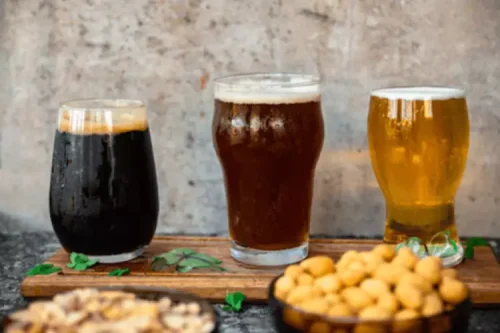
Randomized controlled trials suggest that MBIs are a promising treatment for substance misuse and exert their effects via increases in levels of mindfulness across a wide array of substance-misusing behaviors and clinical populations. In a 2017 study, researchers found that practicing mindfulness in MBRP may reduce the link between craving and substance use and increase resilience for relapse. In 2014, a randomized control trial (RCT), the gold standard trial for evaluating the effectiveness of interventions, was conducted by Bowen and colleagues. The study investigated how effective the Mindfulness-Based Relapse Prevention program would be compared to a standard relapse-prevention program and a conventional 12-step program. Six months following the intervention, the mindfulness-based program and the traditional relapse-prevention program were more successful at reducing relapse than the 12-step program.

Therapeutic mechanisms of mindfulness as a treatment for addiction
Relapse prevention plans and emergency strategies are essential for managing these situations. The recovery process varies for each individual and depends on the severity of the addiction, the treatment approach, and the individual’s commitment to recovery. Recovery is an ongoing process that can take months or even years to achieve and maintain long-term sobriety.
Understanding Mindfulness-Based Relapse Prevention

Yet, work now needs to be done to understand the feasibility, acceptability, and impact of delivering MBIs in addiction treatment settings. Although it has many forms, meditation is usually practiced by sitting and quietly observing your body or thoughts. Some people focus on their breath, and feel it swell inside their chest before they slowly exhale. Some people pay attention to their physical experience, listening to their entire body and allowing each sensation to exist without judgment. Ark Behavioral Health Is an accredited drug and alcohol rehabilitation program, that believes addiction treatment should not just address “how to stay sober” but needs to transform the life of the addict and empower him or her to create a more meaningful and positive life. We are dedicated to transforming the despair of addiction into a purposeful life of confidence, self-respect and happiness.

Expansion of MBRP findings: specific populations, modified protocols, and adjunctive interventions
- The first session introduces clients to the visceral feelings of craving, and how the urge to smoke manifests itself in the body.
- Even though generally favorable, some meta-analyses conclude that MBIs are comparable but not superior to existing treatment approaches.
- Negative affect is directly linked to enhanced reactivity in the brain’s response to stressors [63].
- Through personalized guidance and continued access to mindfulness resources, RECO Intensive helps individuals navigate the complexities of recovery with confidence.
Creative therapies like art and music therapy provide alternative ways for individuals to express their emotions, process their experiences, and heal from the trauma of addiction. These therapies are particularly valuable for those who may find it difficult to articulate their feelings https://ecosoberhouse.com/ through traditional talk therapy. Recovery from cocaine addiction is a journey that requires commitment, support, and a willingness to change. With the right treatment plan and the support of professionals and loved ones, it is possible to overcome addiction and build a brighter future.
Understanding Emotional Triggers through Mindfulness

Mindfulness, a practice rooted in ancient meditation traditions, has found a pivotal role in the journey of addiction recovery. It involves being fully present in the moment, aware of where we are and what we’re doing, without being overly reactive addiction meditation kundalini or overwhelmed by what’s going on around us. In the context of addiction recovery, mindfulness becomes a transformative tool, empowering individuals to navigate their emotions, cravings, and triggers in a healthy, non-judgmental manner.

Once you get a sense of the basics of mindfulness, you can experiment with some of the more formal methods to see if these are helpful. Studies show that most of the well-known approaches work, but that each has specific strengths. You could also practice while putting on lotion, taking a walk, or listening to music. Become aware of your senses, and notice the feelings and sensations that are present.
- Currently undergoing research investigates the effect of virtual reality cue-exposure in addition to an MBI in methamphetamine use disorder patients [104].
- It is appealing to assume that the preliminary positive results in MM studies are direct outcomes of MM interventions; however, such a hypothesis is premature.
- One of the cornerstones of MBRP is becoming aware of triggers and finding ways to cope with cravings.
- At its core, MBSR teaches individuals to hone their attention on the present moment, recognizing and accepting their thoughts, feelings, and bodily sensations without judgment.
Clinical application of mindfulness intervention mechanisms for substance use disorder and relapse prevention
- Become aware of your senses, and notice the feelings and sensations that are present.
- This can help create a more consistently positive mindset as you conduct your daily activities.



